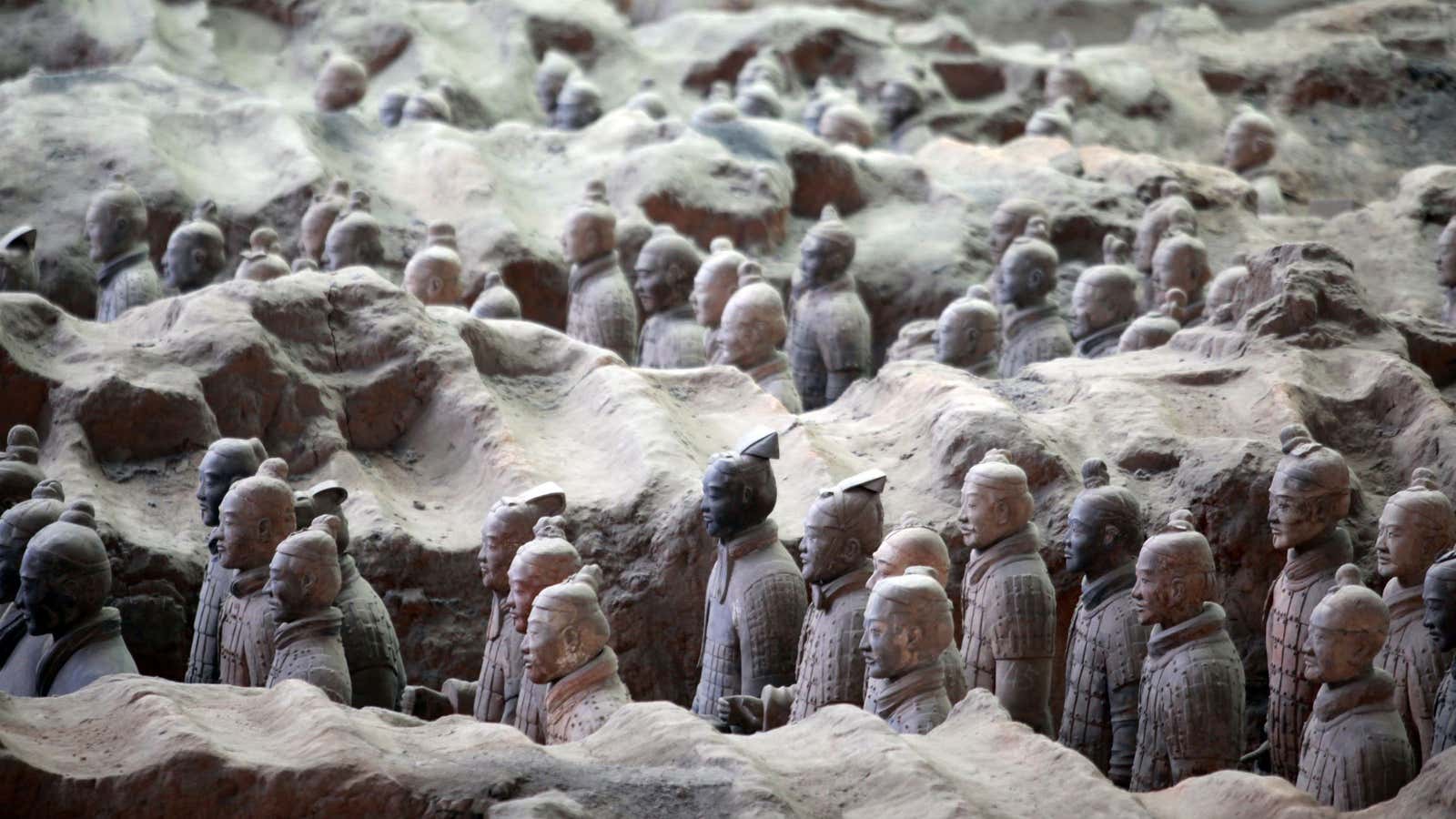Two middle-aged professors sit at a table surrounded by shelves full of books. Both a little shy, they urge each other to sing “that song.” Then they agree to sing it together.
No, it is not karaoke night. The professors, Peter Bol and William Kirby, two Harvard professors of Chinese history, are simply trying to teach students how to remember the order of the dynasties of China, to the melody of the song “Brother John.”
(All videos from HarvardX, and copyright The Presidents and Fellows of Harvard College.)
This video segment, posted as part of Harvard’s free online course “China: Traditions and Transformations” offered to its students as well as the general public, is picking up a growing audience in China. The professors appeal to Chinese viewers, who are used to a solemn atmosphere in the classroom, with their innovative way of teaching. “So cute. I will never forget the dynasties now,” wrote one viewer on Sina.com, the blogging website. “Oh my God…I wish I knew this earlier,” said another.
More than 70,000 people in China have viewed the video, in addition to the over 40,000 students around the world who formally registered on Harvard’s EdX online platform to follow the course.
The course was started in Harvard in 1939 by American academic and pioneering China historian John K. Fairbank and Japan expert Edward Reischauer. Through the years, several renowned scholars taught the course until Bol took it over in 1990 and Kirby joined him in 1992.
The two teach the course in the same Harvard-Yanching Library in Cambridge, Massachusetts where Fairbank taught. And they used the same slides that Fairbank took in China in the 1930s, using the same old machine to show them until the last person who knew how to operate the equipment died in the late 1990s.
The online course, which started last October and will last until the end of this year, embraces all the possibilities that today’s technology provides, including showing artifacts in 3D and interactive maps.
Also different from the Fairbank-era are the American scholars’ views on China. “When Fairbank wrote his last book in 1991, still one of the big questions in that book was why did China fail to develop capitalism? Why did the West outrace China? These are questions that are very dated now,” Kirby, Fairbank’s last doctoral student, told Quartz. He believes China has been one of the leaders of the world largely through history, except for the three decades under Chairman Mao.
In the course, the professors try to challenge misunderstandings about China among both Westerners and Chinese alike.
For examples, Bol, who focuses on early Chinese history, thinks the different hairdos of the highly similar terra cotta warriors was an effort to maintain individuality despite the mass production, and evidence that Westerners are wrong in thinking China is uniform. “In the last two hundred years, China suffered a lot,” Bol told Quartz. “But if you look at the last two thousand, three thousand years, China has been one of the largest, the most populated, the most powerful and the richest countries in the world. And China is again on the road to wealth and power, ” he said. “I think it’s always good if you live in the world to understand how it came about that some countries have been more successful and more powerful than other countries.”
Kirby, who focuses on modern times, said Empress Dowager Cixi in the Qing Dynasty was a hero rather than a criminal as many Chinese believe. The empress led China to sign several unequal treaties that allowed foreign invaders to establish their own settlements in China on long term leases. But Kirby thinks her compromises helped to tame the foreign invaders and to maintain China’s territorial integrity.
The course’s last installment, due to be uploaded in November, titled “Deng Xiaoping and China’s Resilient State,” is likely to deal with Tiananmen Square protests of 1989, which could attract the attention of China’s censors.
Naturally, not everyone in China loves the idea of foreign professors teaching China’s history. “Harvard’s China history course is open to the whole world. This is not a good news,” wrote one viewer on Youku.com, China’s Youtube-like video platform. “Now the world gets to know China through the interpretation of Westerners.”
That’s partially the point, journalist Christopher Lydon seems to be saying during his introduction in the course’s trailer. “If you are not Chinese, this course will give you an alternative world view…And if you are Chinese, you are going to see your way of life, your culture, your history and your present in a different mirror.”
